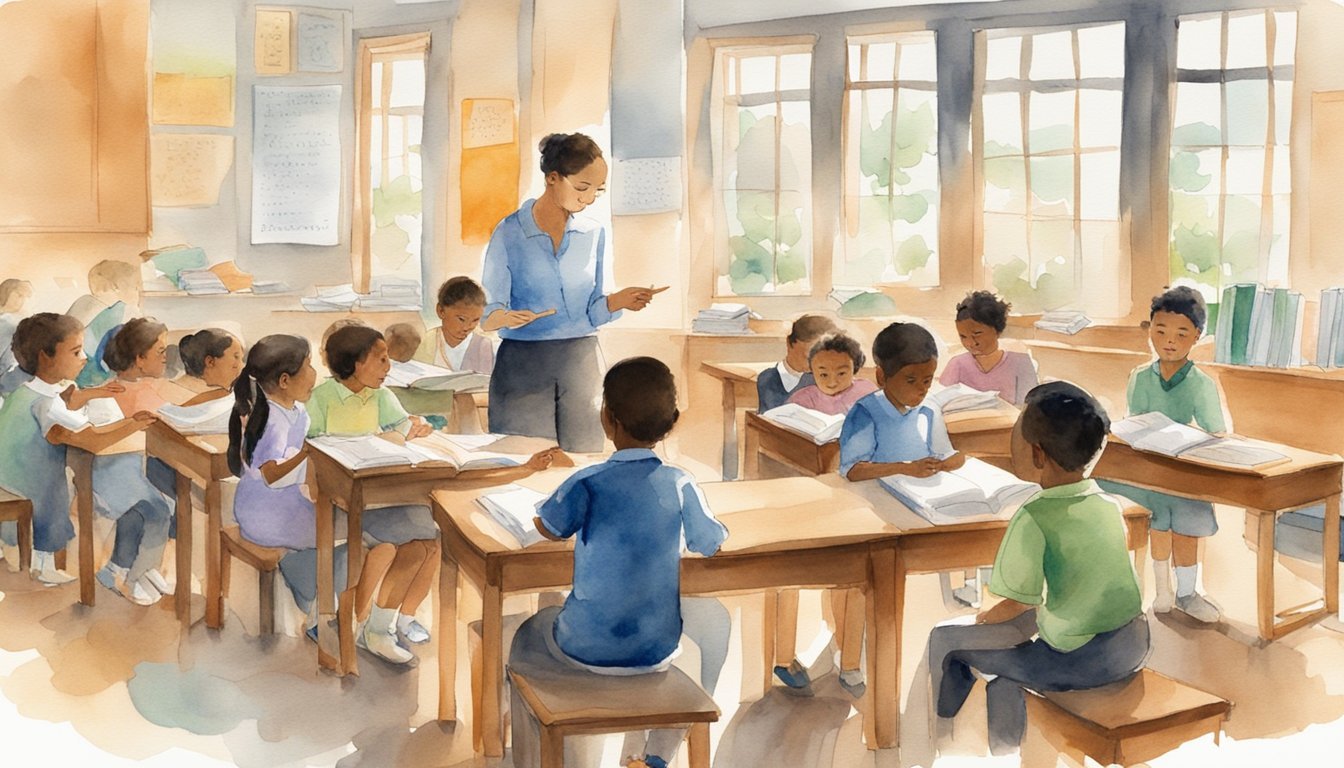Educational Foundations and Development

The foundation of education is critical in shaping a child’s future, focusing on developing essential skills and knowledge through a structured progression from early education to high school.
Early Education: Kindergarten and Preschool
Children typically begin their educational journey in kindergarten and preschool, where they start to develop their cognitive abilities through play and structured activities. This period is crucial for brain development, with a strong emphasis on acquiring basic literacy and numeracy skills. Here, they also start to build social skills, learning to interact with peers and understand cultural norms.
Elementary to High School Progression
As children progress from elementary to middle school, the curriculum becomes more diverse and challenging. Subjects like reading, writing, math, history, and science are introduced, paving the way for more advanced concepts in high school. Skills such as critical thinking and comprehension are honed, which are vital for their future educational and career pursuits.
Learning Methodologies and Curriculum
The methodologies implemented throughout a student’s education aim to foster effective learning. A diverse curriculum in schools ensures that students not only memorize facts but also apply knowledge in practical situations. They learn to analyze information, develop arguments, and solve complex problems, which are essential skills in both personal and professional contexts.
Socialization and Personal Growth
Children’s education transcends academic learning; it plays a vital role in their socialization and personal growth. Schools serve as a pivotal place for children to cultivate a sense of self and belonging, develop their unique talents and abilities, and learn to navigate the complexities of social behavior and community dynamics.
Building Relationships and Community
In the classroom setting, kids have the opportunity to interact with peers, forming friendships that are essential for developing social skills and a support system. The experience of making friends at school contributes to a child’s sense of belonging and identity. Interactions with teachers and other school staff further enrich this community experience. Through these relationships, children learn how to cooperate with others, resolve conflicts, and understand different perspectives, preparing them for various social situations in the future.
Preparing for the Future
School is not only a place for children to learn academic subjects but also a critical environment where they start preparing for adulthood. Quality education often correlates with better chances for higher education and job prospects, shaping a trajectory that influences long-term success and stability in life. Research supports that the social skills acquired in school, such as teamwork and effective communication, are predictors of better grades and college readiness. Moreover, engaging with teachers and mentors can help students identify and hone their talents and abilities, guiding them to make informed decisions as they transition to college and eventually to their careers.

